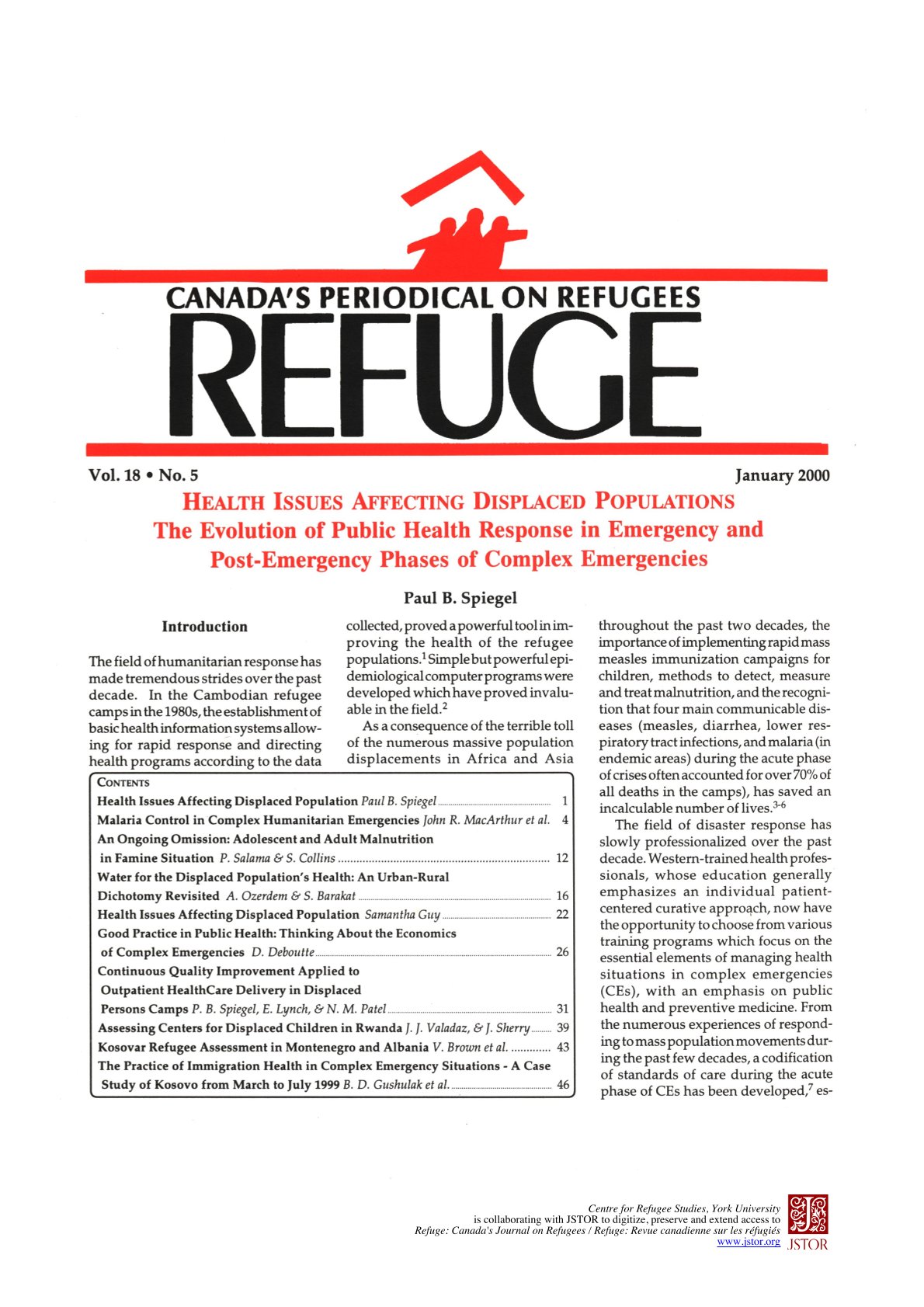An Ongoing Omission: Adolescent and Adult Malnutrition in Famine Situations
DOI:
https://doi.org/10.25071/1920-7336.22046Keywords:
humanitarian response, health, malnutrition, famine, adults, adolescents, research gapAbstract
Prolonged famine causes malnutrition in all age groups. The under five age group is systematically targeted for nutritional interventions in the majority of complex emergencies where famine is a major component. Older children and adults however, are often not targeted systematically or are excluded completely. This is despite the past experience in Somalia, Angola and more recently southern Sudan, of sustained high adolescent and adult mortality rates assocaited with malnutrition. Using the recent example of southern Sudan, the authors analyze some of the reasons for this ommission, which include factors such as inadequate scientific literature, the bias of conventional nutritional epidemiology, agency inexperience and media and funding pressures. Finally the authors call for a greater amount of attention and resources to be targeted towards these age groups by the humanitarian community. Programmes should be accompanied by operational research within the framework of a common research agenda.Metrics
Downloads
Published
How to Cite
Issue
Section
License
Copyright (c) 2000 Peter Salama, Steve Collins

This work is licensed under a Creative Commons Attribution-NonCommercial 4.0 International License.
Refuge authors retain the copyright over their work, and license it to the general public under the Creative Commons Attribution-Non Commercial License International (CC BY-NC 4.0). This license allows for non-commercial use, reproduction and adaption of the material in any medium or format, with proper attribution. For general information on Creative Commons licences, visit the Creative Commons site. For the CC BY-NC 4.0 license, review the human readable summary.







